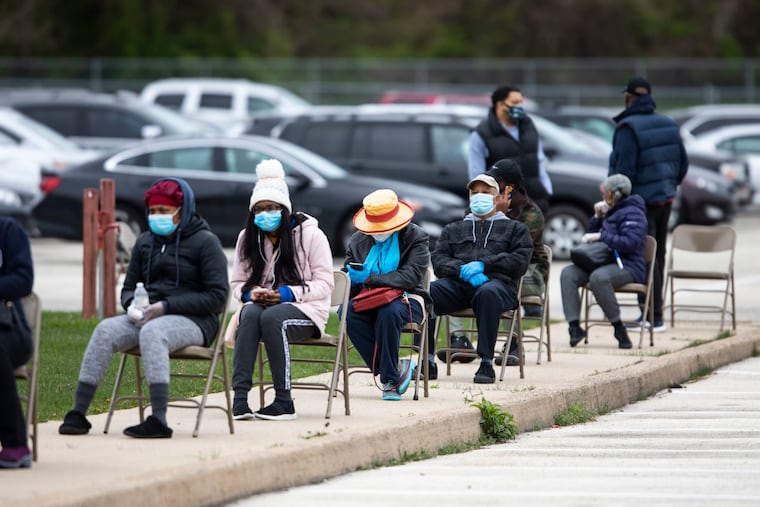As a black woman, I have survivor’s guilt during the pandemic | Perspective
I worry about getting COVID, but my biggest fear is that I will have to continue watching other black people die for years.

I am an African-American woman, and coronavirus has given me survivor’s guilt. While Black Americans continue to be affected by COVID-19 at alarming rates, I have personally remained safe, if fearful. African-Americans make up 30% of COVID cases, according to the Centers for Disease Control and Prevention, even though we are only 13% of the population. Black people make up more than half of Philadelphia’s deaths from COVID-19, and are twice as likely to die from the disease as white people in New York state, per April data. Down south, the death rate among African-Americans is drastic. The Louisiana Department of Health reports that nearly 60% of COVID-related deaths are African-Americans.
All of this makes me feel deep fear. I fear that I will lose loved ones, or know people who will die. I have started to hear about friends of friends and cousins who are getting sick. I know that I will lose someone close to me, seeing the alarming rate at which black people are being affected by COVID. I worry that COVID will drastically reduce the size of our communities. I am concerned about what measures are being taken to find a vaccine, a worry I know other black people share due to our history with the Tuskegee educational experiment — when black men were purposefully and unknowingly infected with syphilis to have their health tracked for over 40 years.
“My relationship with COVID manifests itself in tears every night, after phone calls with friends who’ve lost another family member in New Orleans, Detroit, or Chicago.”
To protect as many lives as possible, I hope all Americans continue strict social distancing. But it’s taking a toll. I wonder how long the entire nation will have to go on like this. I question whether remaining six feet apart will become a permanent way of life. I find it strange not to touch, hug, or kiss my parents, siblings, uncles and cousins. I lose hope at the sight of images of black people crying in New Orleans, which takes me back to the aftermath of Hurricane Katrina. Like everyone else, I wait to see what will happen. But unlike everyone else in the U.S., I’m part of a community that has spent hundreds of years earning our freedom.
My relationship with COVID manifests itself in tears every night, after phone calls with friends who’ve lost another family member in New Orleans, Detroit, or Chicago. I watch the death toll of black people skyrocket each day. I wonder if I’m next. I feel as though our communities just can’t catch a break. I feel anger, sadness, and frustration for black people. I experience survivor’s guilt for not living in the deep south, where black people may be hit the hardest. I lose the motivation to exercise or break the stay-at-home order to take walks. I find comfort in rich foods and cigarettes, and plan phone calls with friends where we drink together. At this strange time, I experience a unique collective sense of fear and sadness with my black peers. I feel hopeless, and wonder if other Americans are as afraid as I am.
» READ MORE: Farewell from a distance: How this black-owned Philadelphia funeral home handles a community’s coronavirus losses
I experience nightmares that involve me forgetting to leave the house without papers that grant me permission to leave. I fear African-Americans will be put into separate housing or quarantine centers because we are affected by COVID at such disproportionate rates. I worry about the government finding ways to blame COVID on the black population. I find myself wondering if my family members’ efforts to fight for freedom and integrated spaces were worth it at all.
Through all of this, I find that the strongest feeling I have in response to COVID is my guilt. It creeps up in the most unusual ways — sweating more than I ever did before and having trouble sleeping, vivid nightmares, cravings for alcohol. My biggest fear isn’t that I will get COVID — it’s that I will have to continue watching other black people die for years.
Still, I find myself seeking comfort in the words of Maya Angelou and Malcolm X, doing makeshift puzzles, and gathering with family — while remaining six feet apart— for late-night trivia. I take walks, swim laps, and find that exercise is the best outlet to cope with my guilt. I keep faith that a vaccine will become accessible to everyone. Like my ancestors, I have to remain hopeful.
Maya Richard-Craven is a contributing writer for the New York Daily News and resides in Pasadena, CA.